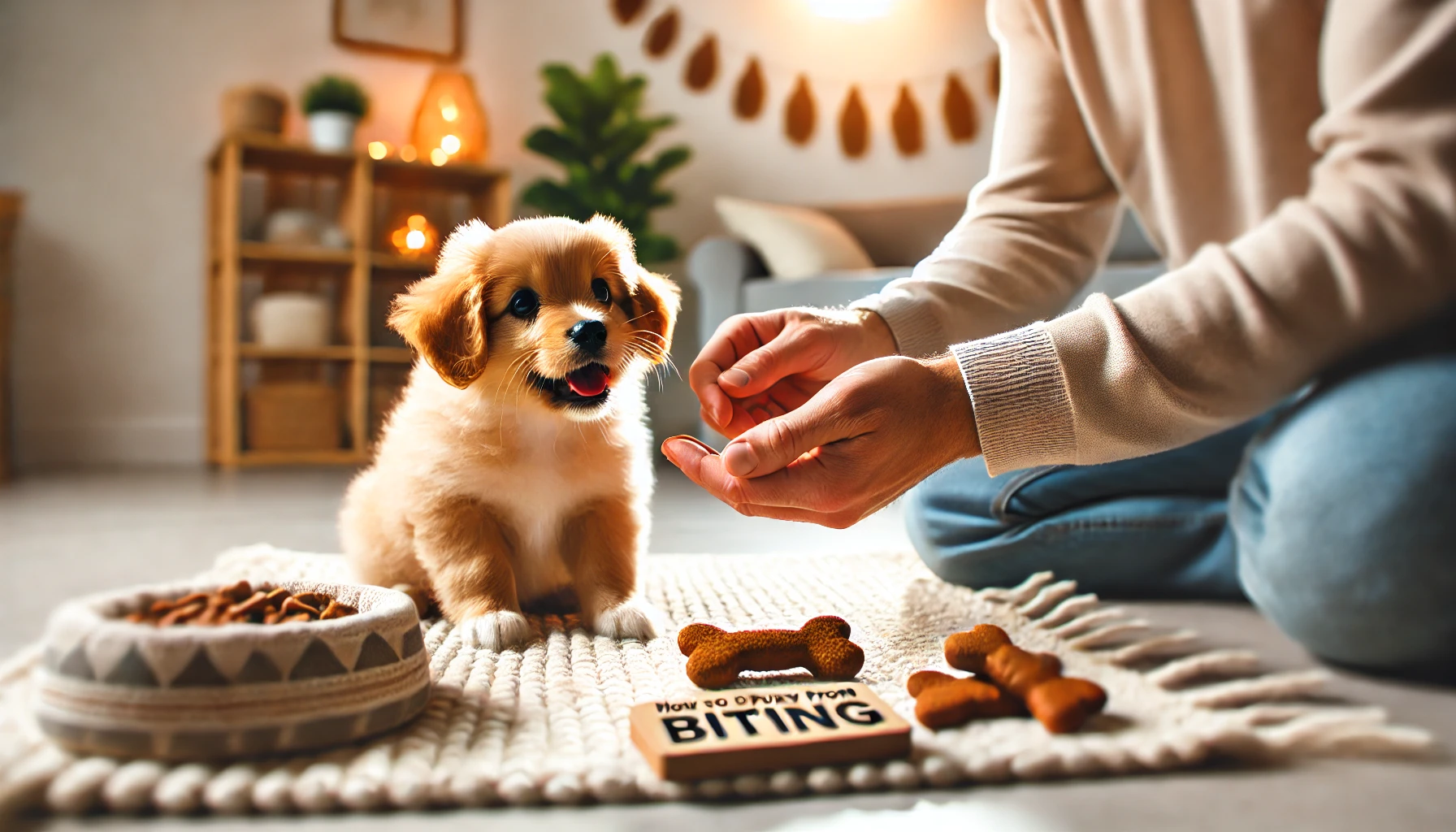Introduction
Puppies are lovable, energetic, and naturally curious. If you’re wondering how do you stop a puppy from biting, you’re not alone. However, one of the most common challenges puppy owners face is biting. While it’s a normal part of a puppy’s growth, it’s important to teach them early that biting people is not acceptable. This guide will help you understand why puppies bite and share effective strategies to curb this behavior, ensuring your puppy grows into a well-mannered companion.
Why Do Puppies Bite?
Understanding why puppies bite is the first step in addressing the issue. Here are the main reasons:
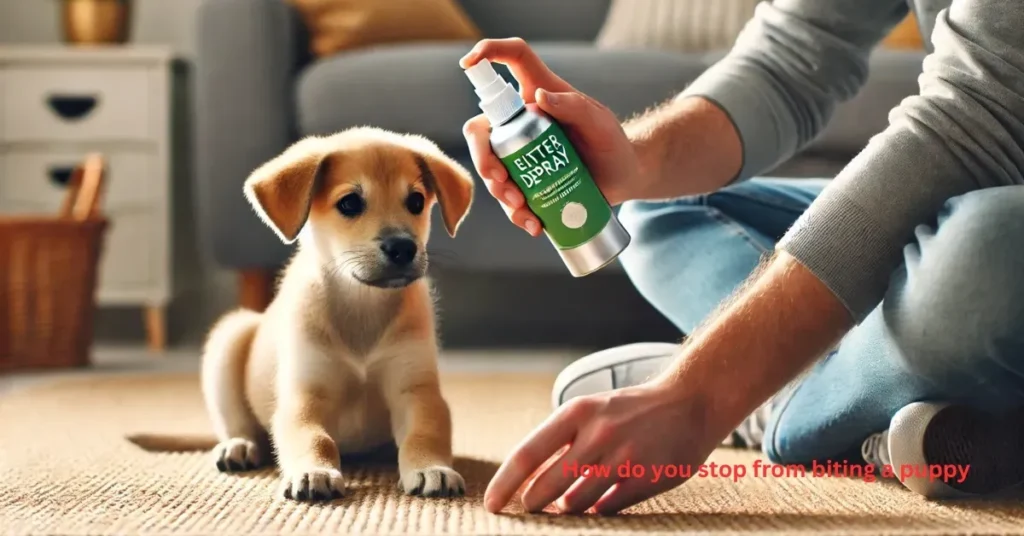
1. Teething Pain Relief
Just like babies, puppies go through a teething phase, and chewing on objects—including hands—helps soothe their gums. Provide frozen washcloths or rubber teething toys to ease discomfort.
2. Exploring the World
Puppies use their mouths to explore, much like human babies do with their hands. Everything is new to them, and they naturally investigate by biting. This behavior should be redirected toward appropriate chew toys.
3. Play Behavior
In a litter, puppies play by biting each other. If one puppy bites too hard, the other yelps and stops playing, teaching boundaries. Without their littermates, puppies may continue this behavior with humans. Teaching bite inhibition is crucial.
4. Seeking Attention
Sometimes, biting is simply a way for a puppy to get your attention, especially if they feel ignored or bored. Ensure they receive enough playtime and mental stimulation to prevent attention-seeking behavior.
5. Excitement or Overstimulation
Puppies may nip when they get overly excited during play or interaction. Calming them with structured play and training can reduce excessive biting.
6. Fear or Anxiety
A scared or anxious puppy may bite as a defensive reaction if they feel threatened or uncomfortable. Proper socialization and gentle handling help ease anxiety.
How Do You Stop a Puppy from Biting?
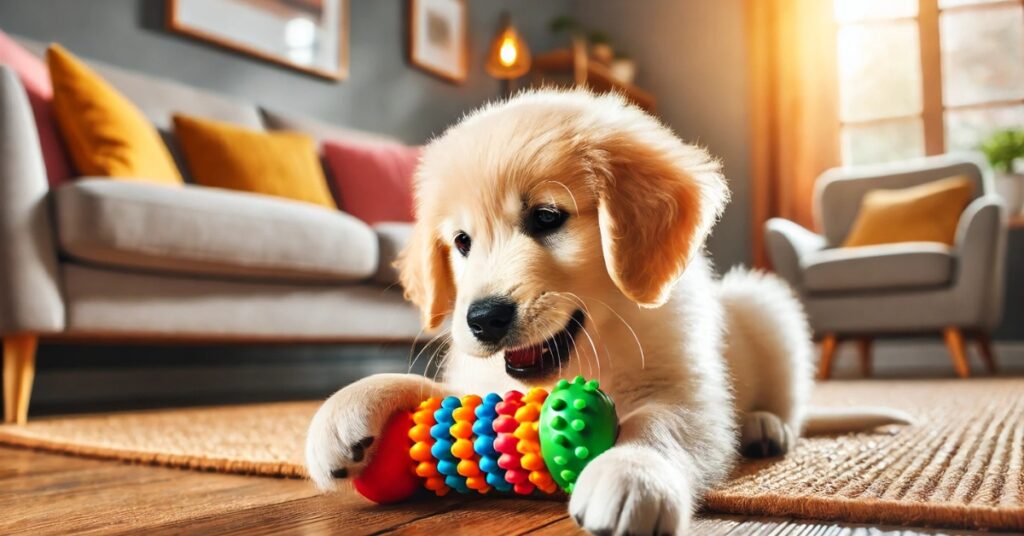
Puppy biting can be frustrating, but it is a completely normal behavior. They explore their world through their mouths, so it is up to us as responsible pet owners to teach them bite inhibition and provide appropriate outlets for their energy. Without proper training, excessive biting could develop into a long-term issue. The key to success is consistency, patience, and positive reinforcement. Now that you know why puppies bite, here are proven techniques to stop the behavior:
1. Teach Bite Inhibition
Puppies need to learn that biting hurts. When they bite too hard, say “Ouch!” in a firm, but not aggressive, voice. Stop interacting for a moment and then resume play. This teaches them that biting stops the fun.
💡 Pro Tip: If saying “Ouch!” doesn’t stop your puppy, try withdrawing attention immediately and turning away. Puppies quickly learn that biting leads to no interaction.Puppies need to learn that biting hurts. When they bite too hard, say “Ouch!” in a firm, but not aggressive, voice. Stop interacting for a moment and then resume play. This teaches them that biting stops the fun.
2. Redirect to Chew Toys
Always have chew toys nearby. If your puppy starts biting, immediately offer a toy instead. This helps them associate chewing with appropriate objects.
💡 Pro Tip: Keep multiple chew toys in different locations so you can easily grab one when needed. Puppies often bite out of impulse, so quick redirection is key.Always have chew toys nearby. If your puppy starts biting, immediately offer a toy instead. This helps them associate chewing with appropriate objects.
3. Reward Good Behavior
- Praise and treat your puppy when they lick or play gently instead of biting.
- Positive reinforcement encourages them to repeat good behavior.
4. Avoid Rough Play
Roughhousing with your puppy might seem fun, but it can encourage aggressive behavior. Puppies who are frequently engaged in rough play may become confused about appropriate and inappropriate biting. Instead, focus on structured games that teach impulse control.
- Rough play can trigger biting, so opt for gentler activities like fetch.
- Keep your hands away from their mouth during play.
5. Encourage Socialization
- Expose your puppy to other dogs and people in controlled environments.
- Puppies learn manners from older dogs and other social experiences.
💡 Pro Tip: Arrange playdates with well-behaved adult dogs that can help teach your puppy proper play manners. Older dogs naturally correct puppies without harming them.- Expose your puppy to other dogs and people in controlled environments.
- Puppies learn manners from older dogs and other social experiences.
6. Give Time-Outs
If your puppy doesn’t respond to redirection or continues to bite, a short time-out can be beneficial. Remove them from play and place them in a designated quiet area where they can calm down. Be sure to keep time-outs brief (30-60 seconds) and avoid using their crate as a punishment tool—this should always remain a safe and positive space.
- If your puppy keeps biting, remove them from the situation for a few minutes.
- Time-outs teach that biting leads to lost attention and playtime.
7. Use Taste Deterrents
- Apply a bitter spray to your hands or clothing to discourage biting.
- Puppies dislike the taste and learn to avoid biting you.
8. Ensure Proper Exercise and Mental Stimulation
- A tired puppy is less likely to bite out of excess energy.
- Provide physical activities and puzzle toys to keep them engaged.
💡 Pro Tip: Short training sessions combined with playtime help burn energy and engage your puppy’s mind, reducing biting tendencies.- A tired puppy is less likely to bite out of excess energy.
- Provide physical activities and puzzle toys to keep them engaged.
9. Be Consistent
- Everyone in your household should follow the same training rules.
- Mixed messages will confuse your puppy and slow progress.
10. Consult a Trainer if Needed
If your puppy’s biting remains excessive or becomes aggressive despite consistent training, it might be beneficial to work with a certified professional dog trainer or animal behaviorist. They can help assess the situation and provide personalized training plans to address any underlying issues.
If your puppy’s biting is aggressive, frequent, or persistent despite training, consider seeking help from a professional dog trainer.
💡 Pro Tip: If your puppy’s biting is persistent and aggressive, seek professional help early. Addressing behavioral issues sooner leads to better long-term success.If your puppy’s biting is aggressive, frequent, or persistent despite training, consider seeking help from a professional dog trainer.
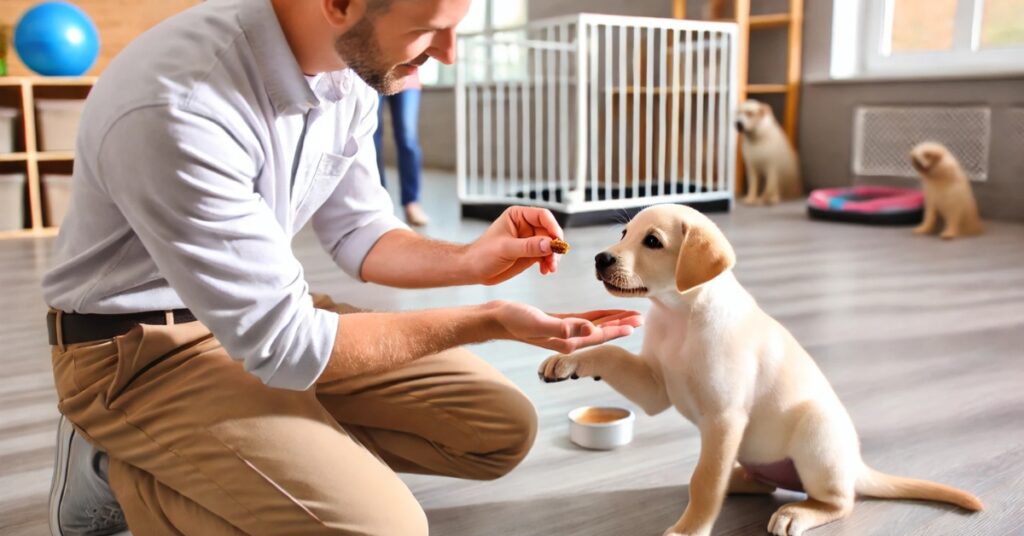
Additional Tips for Faster Training Success
- Keep training sessions short and fun to maintain your puppy’s interest.
- Use hand signals along with verbal cues to reinforce commands effectively.
- Give your puppy plenty of breaks during playtime to prevent overstimulation.
- Reward calm behavior by giving treats and gentle praise when they remain relaxed.
- Introduce bite-free games like tug-of-war with structured rules to build discipline.
Do’s and Don’ts for Stopping Puppy Biting
✅ Do’s:
✔️ Offer chew toys to redirect biting.
✔️ Use positive reinforcement and reward gentle behavior.
✔️ Socialize your puppy with other dogs and people.
✔️ Teach bite inhibition by stopping play when biting happens.
✔️ Be patient—puppies take time to learn.
✔️ Provide adequate physical and mental stimulation.
❌ Don’ts:
❌ Don’t yell or physically punish your puppy—it can cause fear and aggression.
❌ Don’t encourage biting by using your hands as play objects.
❌ Don’t be inconsistent—stick to the same training rules.
❌ Don’t allow biting sometimes and stop it at other times—this confuses the puppy.
❌ Don’t expect overnight results—consistent training is key.
Frequently Asked Questions (FAQs)
1. At what age do puppies stop biting?
Most puppies naturally reduce biting between 4 to 6 months of age as they learn bite inhibition and get their adult teeth. However, training is essential for long-term behavior correction.
2. Is it normal for puppies to bite a lot?
Yes, puppies bite frequently as part of their natural development. The key is teaching them what is acceptable to bite.
3. How do I stop my puppy from biting my hands and clothes?
Redirect their biting to a toy, stop interacting when they bite, and use commands like “No bite.” Consistency is essential.
4. Should I punish my puppy for biting?
No, punishment can create fear and aggression. Instead, focus on positive reinforcement and redirection.
5. Can teething be the reason my puppy bites?
Yes, teething causes discomfort, making puppies chew more. Offer frozen teething toys to soothe their gums.
6. When should I seek professional help for my puppy’s biting?
If your puppy’s biting becomes aggressive, doesn’t improve with training, or causes injuries, consult a dog trainer or veterinarian.
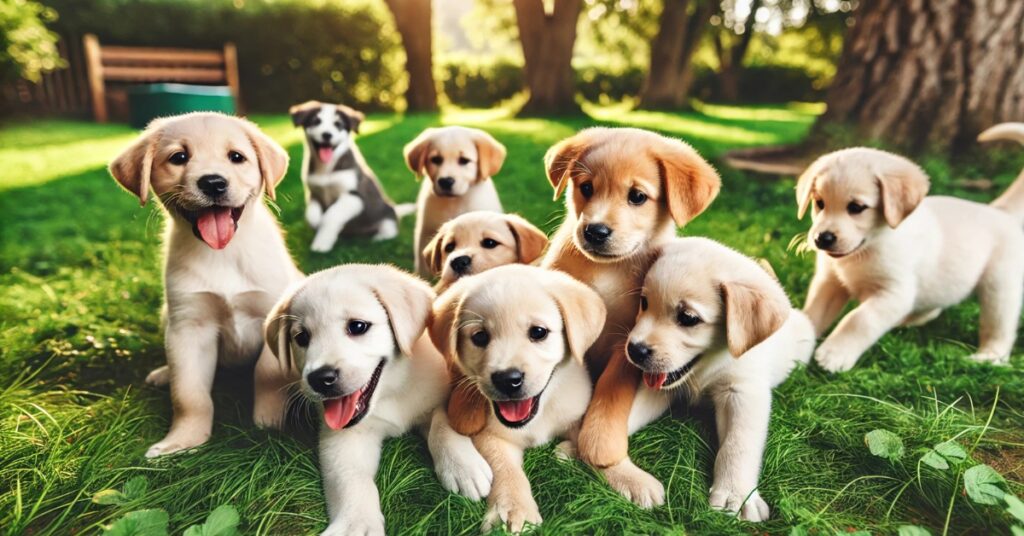
Additional Strategies to Reduce Puppy Biting
11. Teach the “Leave It” Command
Teaching your puppy the “Leave it” command is a great way to establish impulse control. Start with a treat in your hand and wait for your puppy to stop trying to grab it. Once they pull back, reward them with a different treat. Over time, you can use this command when they attempt to bite or grab something inappropriate.
12. Use Clicker Training
Clicker training is a fantastic way to reinforce positive behavior. When your puppy refrains from biting, use a clicker followed by a treat to mark the good behavior. This method helps create a strong association between the sound and rewards, making learning faster and more effective.
Conclusion
With patience, consistency, and positive reinforcement, you can train your puppy to stop biting. Redirect their focus, ensure they get enough exercise, and use bite inhibition techniques to shape their behavior. With the right approach, your puppy will grow into a well-mannered, gentle companion!
